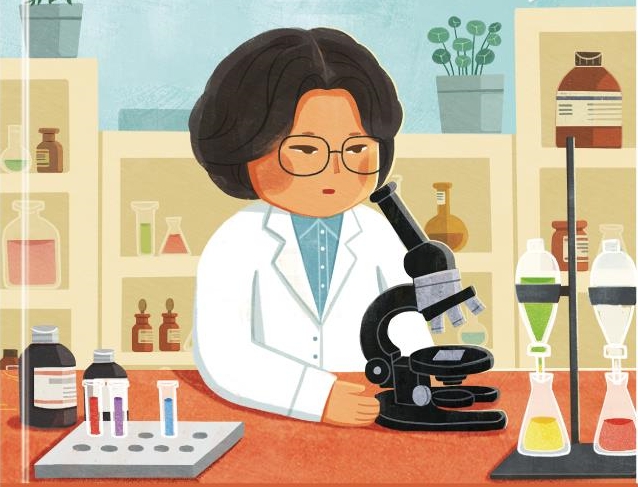This theme is aligned with the priority theme for the upcoming 67th Session of the Commission on the Status of Women (CSW-67), “Innovation and technological change, and education in the digital age for achieving gender equality and the empowerment of all women and girls".
GWP China region has interviewed female scientists on this cool topic.
Zhaohui YANG (Ph.D.)
Senior Engineer and Professor
China Institute of Water Resources and Hydropower Research (IWHR)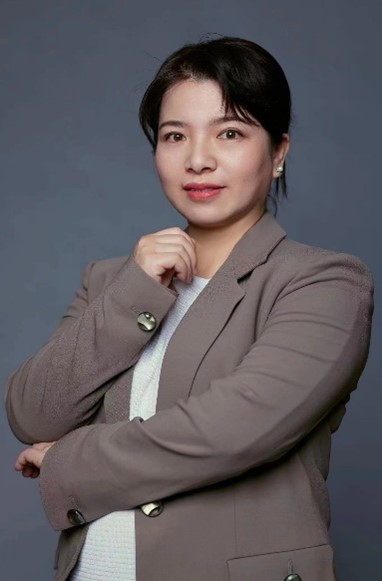
Q: What is your favorite or the proudest of water-related innovation and technology you have engaged? What is its function and has it any outcomes afterwards?
ZHAOHUI: I am researching water conservation planning in several Chinese cities. The proudest water-related technology I have engaged in is “Research on Methods and Applications for the Allocation of Urban Water Resources, Based on Minimum Energy Consumption “.
This study proposes a new scheme for rationally allocating urban water resources considering the high levels of energy currently consumed. The focus is on simultaneously minimizing energy consumption and water shortage rates, and granting priority to public water supplies in line with the predicted water supply levels for all available sources. This technology can provide a reference for Energy -saving for the urban water supply system.
Q: Is there any quote you want to share with other female researchers in the water-related sectors?
ZHAOHUI: When we look around, there are many female fellow travelers working hard as well. To quote Ms. Yang Lan, a Chinese journalist," You don't have to underestimate yourself, rely on your own efforts, seize every opportunity, prove yourself through capabilities, and you will be seen and heard."
Liying GUO (Ph.D.) Tsinghua University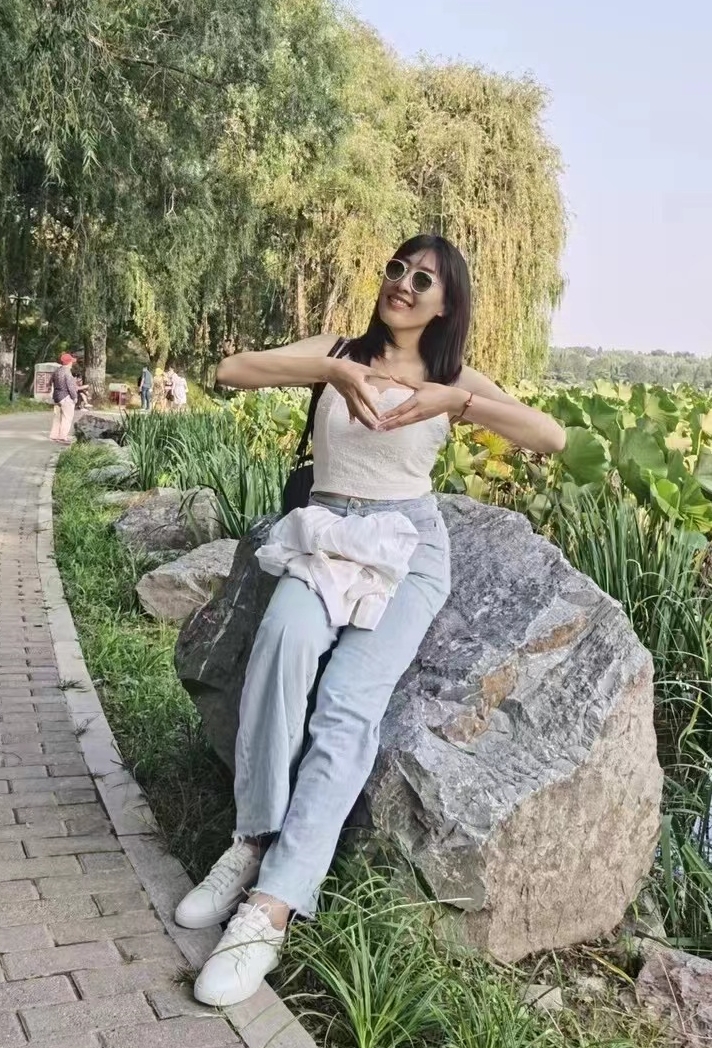
Q: What is your favorite or the proudest of water-related innovation and technology you have engaged? What is its function and has it any outcomes afterwards?
LIYING: In my Ph.D. thesis, I worked on conflict and cooperation dynamics on transboundary rivers based on news media data mining. The most proud of water-related innovation is adopting the methodology from computational social sciences in my study.
Exploring and defining the coupled relationships between water and human, extracting information from news media data and uncovering the attitudes towards conflict and cooperation beneath the news articles, and taking the research of rivers especially transboundary rivers as the interdisciplinary topic is a relatively new field in water research. It is amazing and at the same time full of challenges. Because news media articles are relatively easy to collect to a certain data volume and can reflect the daily lives in the riverbasins as they are, computational social sciences open up our minds in water researches.
Q: Is there any quote you want to share with other female researchers in the water-related sectors?
LIYING: “Living beyond limits.” Along with a girl growing up, too many people would like to tell you what you should do and what you shouldn’t. Nobody can define your life and add limits or constraints to you. Living beyond limits can help you define your own potential and bring you to anywhere you desire to.
Jianming QIN
Senior Professional Manager
Beijing Enterprises Water Group Limited (BEWG)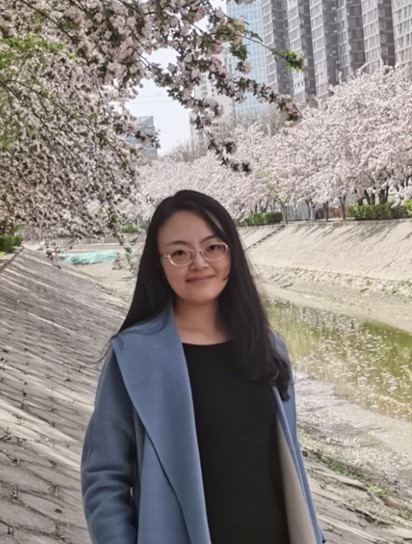
Q: What is your proudest of water-related innovation and technology you have engaged? What is its function and has it any outcomes afterwards?
JIANMING: Speaking of the most impressing water-related innovation I have engaged, it should be the third edition of Asian Water Development Outlook (AWDO) issued by Asian Development Bank (ADB), which was the first multinational research project I worked on after graduation. AWDO provided the first quantitative and comprehensive review of water security in the countries of Asia and the Pacific. It developed a water security framework based on five key dimensions for household, economic, urban, environmental, and resilience to water-related disasters, by which the overall national water security of each country was assessed and compared.
The latest edition of AWDO is the fourth edition issued in 2020. Although I am no longer involved, it is still glad to know that its methodology was refined based on the original water security framework, and positive changes were introduced, like future risk is included in the narratives of all key dimensions.
Q: Is there any quote you want to share with other female researchers in the water-related sectors?
JIANMING: “The ideal of life is to live an ideal life.” Wish we all have the courage to do what we like to do and live as we want to live.
Lijin ZHONG (Ph.D.)
Vice President
Beijing Huanding Environmental Smart Data Institute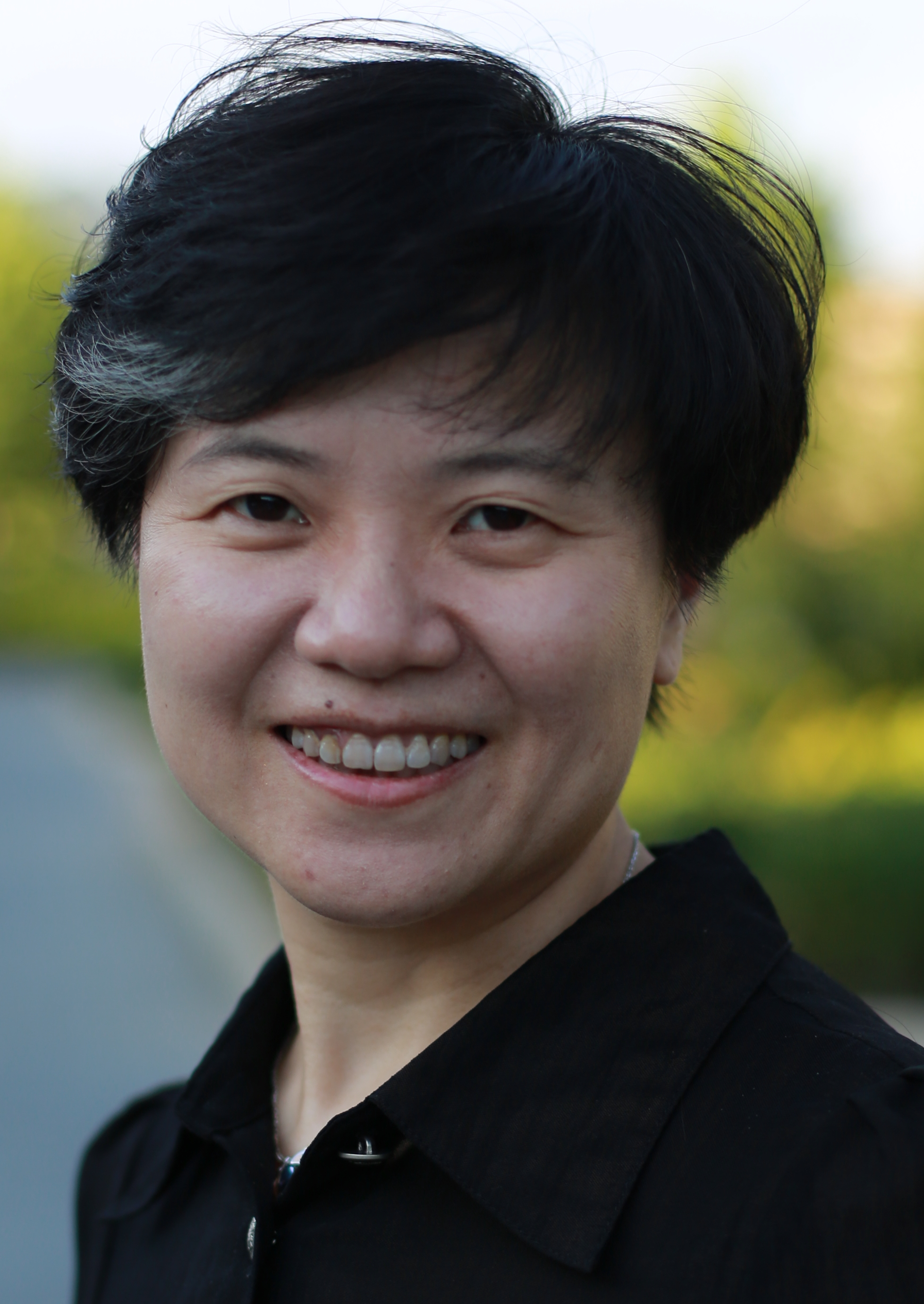
Q: What is your favorite water-related innovation and technology you have engaged?
LIJIN: Big data and new data technology has offered a new and innovative approach to understanding and addressing environmental issues, including the challenges of water resources management and the reasons behind. In addition, I am also interested in new & innovative material for water treatment.
Q: Is there any quote you want to share with other female researchers in the water-related sectors?
LIJIN: Being cross-interdisciplinary and being inclusive is significant to be innovative.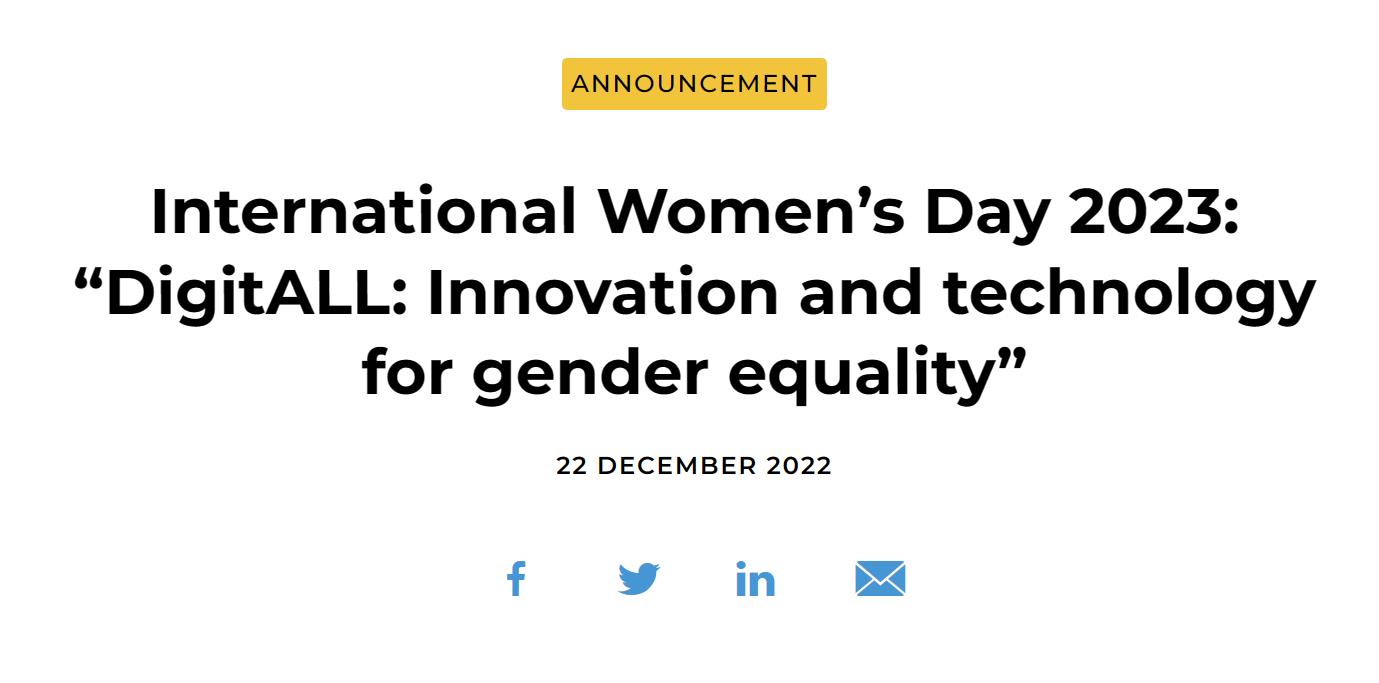
IWD 2023 recognizes and celebrates the women and girls who are championing the advancement of transformative technology and digital education. It explores the impact of the digital gender gap on widening economic and social inequalities. Bringing women and other marginalized groups into technology results in more creative solutions and has greater potential for innovations that meet women's needs and promote gender equality.
Cover: TU Youyou, winner of the 2019 Nobel Prize for Physiology or Medicine (co-winner), whose research led to the discovery of artemisinin, a crucial new treatment for malaria. Artemisinin has saved hundreds of thousands of lives, and has led to improved health for millions of people. Over 200 million people around the world get malaria each year, and about 600, 000 die from it. Artemisinin has become a vital part of the treatment for malaria, and is thought to save 100, 000 lives a year in Africa alone.
